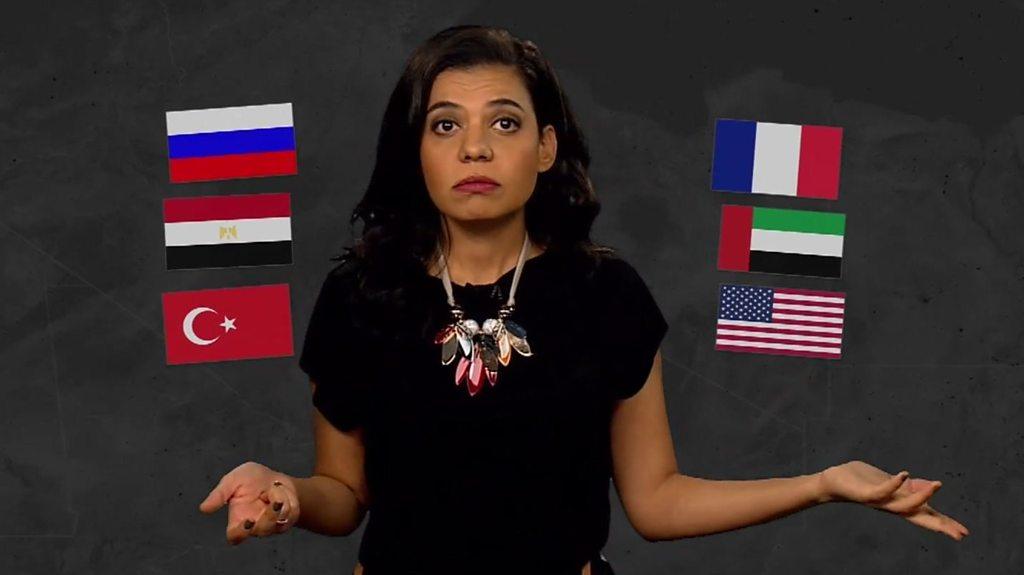Libya conflict: Tripoli rocket attacks halt peace talks
- Published
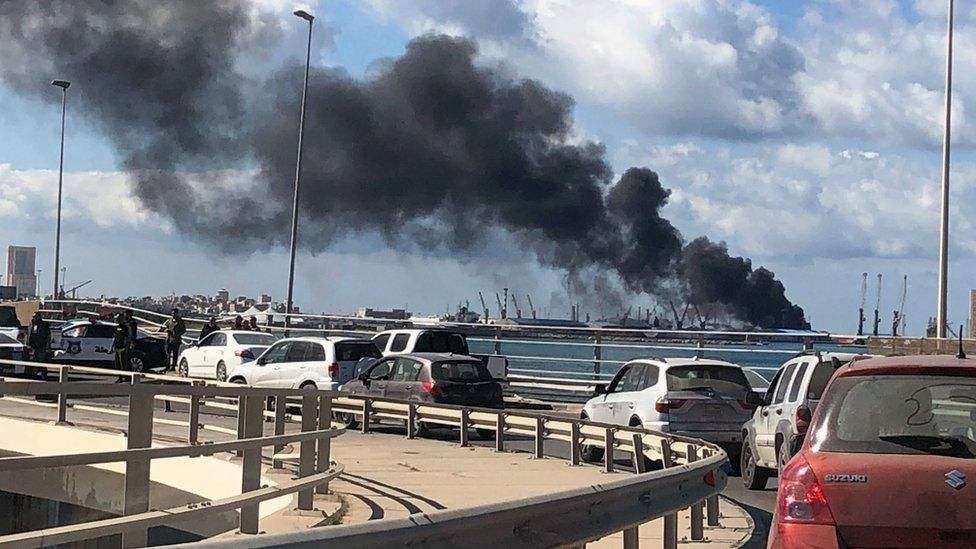
The national oil company had to order all fuel tankers to be evacuated from the port
Libya's UN-backed government has withdrawn from peace talks after the capital was hit by rocket fire.
It said the port was one of the targets struck by forces loyal to renegade General Khalifa Haftar, prompting the evacuation of fuel tankers.
The city has been under siege for almost a year, and relies heavily on shipping to feed its population.
Top negotiations to broker a lasting ceasefire between the two sides in the civil war have faltered several times.
"There can be no peace under the bombing," the UN-backed Government of National Accord (GNA) said.
"We are announcing the suspension of our participation in the military talks taking place in Geneva until firm positions are adopted against the aggressor [Gen Haftar]", it said.
What's behind the fight for Libya?
The conflict in the oil-rich nation has been complicated by the role of foreign states.
Turkey passed a controversial law in January to deploy troops to help GNA forces in Tripoli. Qatar also backs the GNA, led by Prime Minister Fayez al-Sarraj,
Gen Haftar's Libyan National Army (LNA), which controls much of eastern Libya, has the backing of Russia, Egypt, Saudi Arabia, the United Arab Emirates (UAE) and Jordan.
UN chief António Guterres recently termed the conflict a "proxy war", adding in a recent interview with the BBC, that it was "unacceptable".
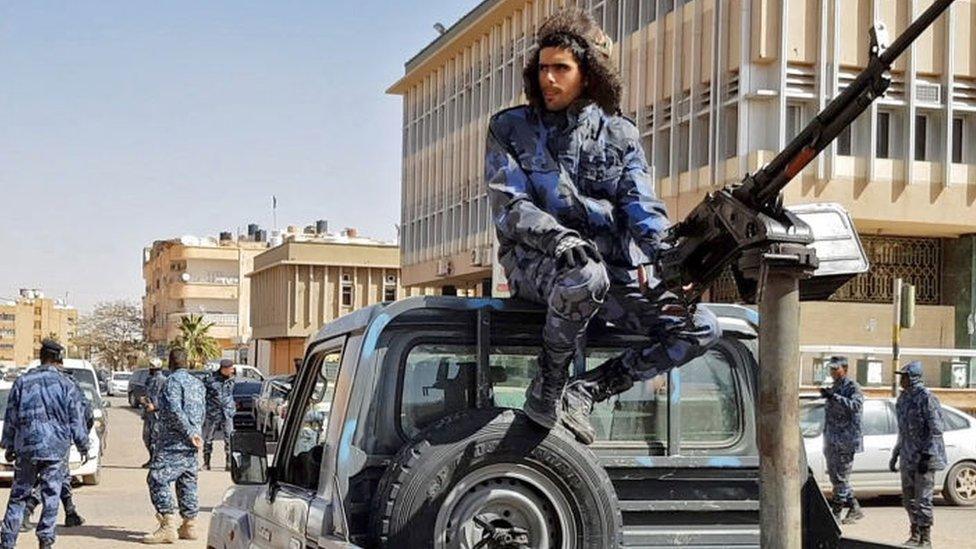
Since Gaddafi's fall, rival armed factions have been vying for power
The fighting has left more than 1,000 people dead and forced some 140,000 from their homes, according to the UN.
Earlier this week, European foreign ministers meeting in the Belgian capital, Brussels, agreed to a new naval and air mission to stop more arms from reaching warring factions in Libya.
Libya has been torn by conflict since the 2011 uprising which ousted long-time strongman Muammar Gaddafi.
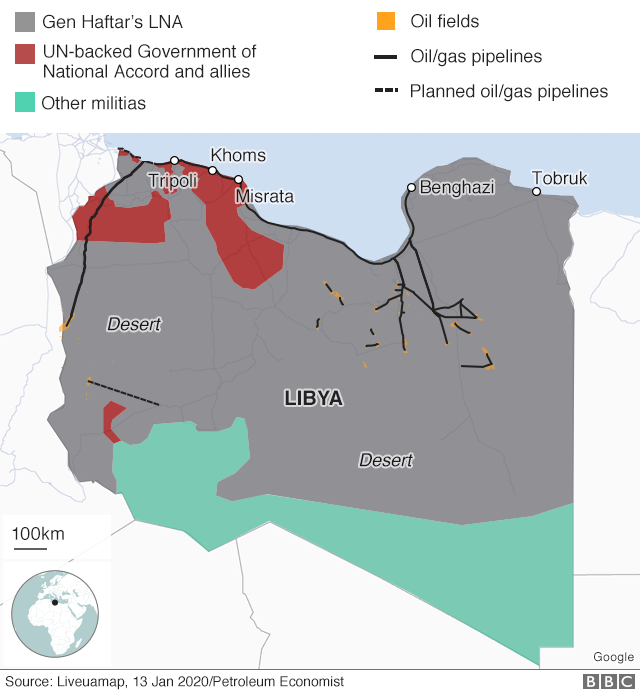

- Published23 January 2020
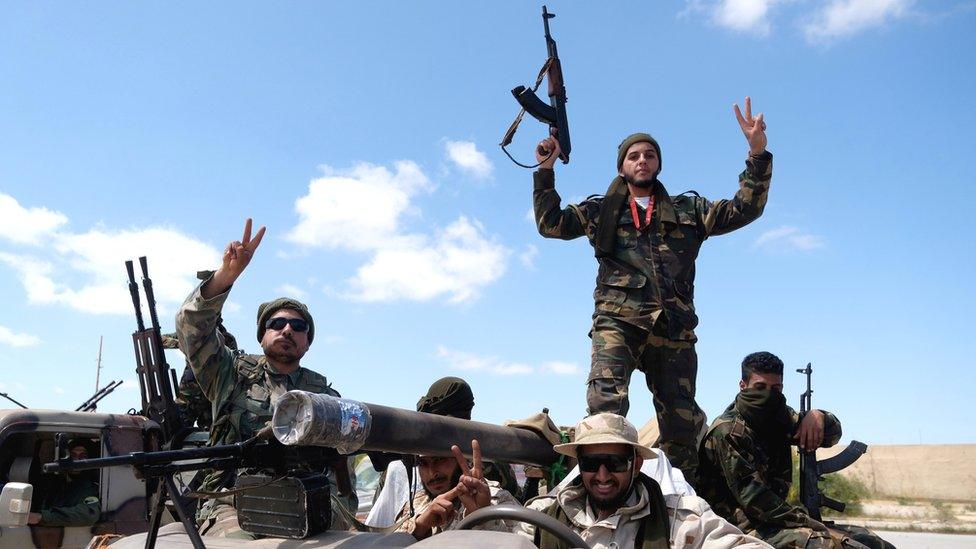
- Published17 January 2020
